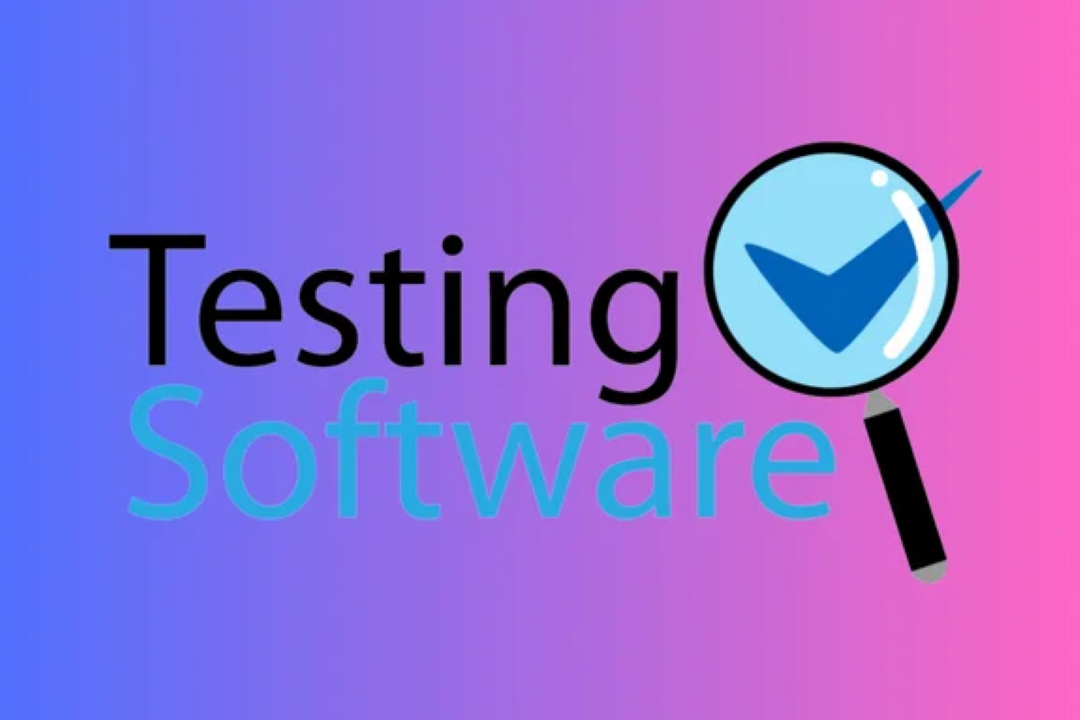3 Selenium WebDriver with Java Training in Chennai
In Chennai, several promising training programs for Selenium WebDriver with Java cater to individual
3 Selenium WebDriver with Java Training in Chennai
In Chennai, three prominent Selenium WebDriver with Java training programs offer valuable insights for aspiring automation testers. First, the foundational course equips learners with essential skills in both Selenium and Java, enabling them to develop automated tests effectively from scratch. The second program dives deeper, focusing on advanced practices such as test framework development and integration with tools like TestNG and Maven, ensuring participants are well-versed in industry standards. Lastly, the hands-on training emphasizes real-time project work, allowing students to apply their knowledge to practical scenarios, which enhances their problem-solving abilities and prepares them for actual workplace challenges in automation testing. Together, these trainings significantly boost employability and technical proficiency in the rapidly growing field of software testing.
To Download Our Brochure: https://www.justacademy.co/download-brochure-for-free
Message us for more information: +91 9987184296
In Chennai, three prominent Selenium WebDriver with Java training programs offer valuable insights for aspiring automation testers. First, the foundational course equips learners with essential skills in both Selenium and Java, enabling them to develop automated tests effectively from scratch. The second program dives deeper, focusing on advanced practices such as test framework development and integration with tools like TestNG and Maven, ensuring participants are well versed in industry standards. Lastly, the hands on training emphasizes real time project work, allowing students to apply their knowledge to practical scenarios, which enhances their problem solving abilities and prepares them for actual workplace challenges in automation testing. Together, these trainings significantly boost employability and technical proficiency in the rapidly growing field of software testing.
Course Overview
The ‘3 Selenium WebDriver with Java Training in Chennai’ is a comprehensive program designed for individuals seeking to master automation testing using Selenium and Java. This course offers a structured curriculum that covers the fundamentals of Selenium WebDriver, advanced testing frameworks, and real-time project applications. Participants will gain hands-on experience in designing and executing automated test scripts, integrating with testing tools such as TestNG and Maven, and learning best practices in automation testing. The training emphasizes practical skills, ensuring that learners are well-equipped to tackle real-world challenges in software testing and enhances their employability in the competitive job market.
Course Description
The ‘3 Selenium WebDriver with Java Training in Chennai’ is an in-depth program tailored for aspiring automation testers and software quality assurance professionals. This course provides a robust foundation in Selenium WebDriver and Java, enabling participants to automate web applications efficiently. Throughout the training, learners will explore key concepts such as browser interactions, synchronization, and the Page Object Model, while also gaining practical experience through real-time projects. By integrating modern testing frameworks like TestNG and Maven, the course prepares individuals to design, execute, and maintain automated test scripts effectively, equipping them with the skills needed to excel in the fast-paced tech industry.
Key Features
1 - Comprehensive Tool Coverage: Provides hands-on training with a range of industry-standard testing tools, including Selenium, JIRA, LoadRunner, and TestRail.
2) Practical Exercises: Features real-world exercises and case studies to apply tools in various testing scenarios.
3) Interactive Learning: Includes interactive sessions with industry experts for personalized feedback and guidance.
4) Detailed Tutorials: Offers extensive tutorials and documentation on tool functionalities and best practices.
5) Advanced Techniques: Covers both fundamental and advanced techniques for using testing tools effectively.
6) Data Visualization: Integrates tools for visualizing test metrics and results, enhancing data interpretation and decision-making.
7) Tool Integration: Teaches how to integrate testing tools into the software development lifecycle for streamlined workflows.
8) Project-Based Learning: Focuses on project-based learning to build practical skills and create a portfolio of completed tasks.
9) Career Support: Provides resources and support for applying learned skills to real-world job scenarios, including resume building and interview preparation.
10) Up-to-Date Content: Ensures that course materials reflect the latest industry standards and tool updates.
Benefits of taking our course
Functional Tools
1 - Selenium WebDriver: Selenium WebDriver is the core component of the automation testing framework taught in this course. It provides a programming interface to create, manage, and run tests for web applications. With its ability to control a browser programmatically, WebDriver facilitates automated testing across various browsers such as Chrome, Firefox, and Safari. Students learn how to write test scripts in Java, using WebDriver to navigate web pages, interact with web elements, and verify application behavior. This knowledge forms the foundation for effective test automation strategies.
2) Java Programming: Given that the course focuses on Selenium WebDriver with Java, a strong emphasis is placed on Java programming language fundamentals. Participants gain proficiency in writing robust automation scripts, utilizing concepts such as object oriented programming, data structures, and exception handling. Understanding Java is essential as it allows students to leverage Selenium’s capabilities to their fullest potential. This combination ensures students can develop efficient and clean code that enhances test maintainability.
3) TestNG Framework: TestNG is a testing framework inspired by JUnit and NUnit, specifically tailored for test automation in Java. This course introduces TestNG for creating and managing automated test cases. It allows participants to group tests, prioritize them, and generate detailed reports. TestNG supports various features such as annotations, dependency testing, and data driven testing, enabling students to create comprehensive test suites. The knowledge of TestNG enhances the testing process by improving execution efficiency and tracking results effectively.
4) Maven for Project Management: The course integrates Apache Maven, a powerful tool for project management and build automation in Java projects. Participants learn how to set up and manage Selenium projects using Maven, simplifying dependency management and ensuring consistency across different testing environments. Familiarity with Maven allows students to streamline their project workflows, automate build processes, and effectively manage library versions, resulting in a more organized and structured approach to automation testing.
5) Git for Version Control: Git is an essential tool for version control, and its integration into the course curriculum highlights the importance of maintaining and collaborating on code. Students learn how to use Git to manage their test scripts, track changes, and collaborate with team members. Understanding version control is crucial for maintaining the integrity of test automation projects, especially in dynamic team environments. This skill prepares students for real world scenarios where collaboration and continuous integration are key to successful project execution.
6) Browser Drivers: The course covers the essential browser drivers required for Selenium WebDriver to interact with different web browsers. Students learn how to configure and utilize drivers such as ChromeDriver, GeckoDriver, and EdgeDriver. This knowledge is vital for running automated tests on various browsers, ensuring cross browser compatibility for web applications. Participants are guided through driver setups, environment configurations, and best practices for managing browser interactions effectively during the testing process.
7) Page Object Model (POM): The Page Object Model (POM) is a design pattern that enhances test automation by promoting the separation of test scripts from the underlying web application’s structure. The course emphasizes the implementation of POM to create maintainable and reusable test scripts. By utilizing POM, students learn how to encapsulate page elements and their interactions, leading to cleaner code and improved test readability. This design pattern makes it easier to manage tests, especially as applications evolve over time.
8) Selenium Grid: Understanding Selenium Grid is crucial for running tests in parallel across multiple machines and browsers. The course covers how to set up and configure Selenium Grid to distribute tests efficiently, reducing execution time significantly. Students learn how to create a robust testing environment that supports scalability and enhances productivity by enabling concurrent test execution. Knowledge of Selenium Grid equips participants with skills to handle large test suites effectively.
9) Handling Different Web Elements: The course dives deep into various web elements, including dynamic elements, dropdowns, alerts, frames, and pop ups. Students learn techniques to interact with these elements using Selenium WebDriver, including methods for waiting and synchronization. Mastering these skills allows for more effective automation, as students become adept at overcoming common challenges encountered in real world web applications.
10) Explicit and Implicit Waits: Effective test automation requires managing timing issues associated with web elements loading asynchronously. This course teaches the use of both explicit and implicit waits in Selenium WebDriver. Students gain insights into best practices for synchronizing their scripts with the web application’s state, minimizing errors and ensuring that tests run smoothly and reliably.
11 - Data Driven Testing with TestNG: The course introduces data driven testing methodologies using TestNG, allowing students to run the same test with multiple sets of data. This approach emphasizes the significance of testing various input scenarios without duplicating code. Students learn to leverage Parameterization and Data Providers in TestNG to enhance their testing capabilities, ensuring comprehensive coverage and higher quality assurance.
12) Reporting and Logging: The importance of effective reporting and logging in test automation is a key focus of the course. Participants learn how to generate clear and informative test reports using tools like ExtentReports and Allure. Additionally, the course covers best practices for logging essential information during test execution, offering valuable insights for debugging and maintaining test scripts. Strong reporting skills enable teams to communicate test results effectively to stakeholders.
13) Continuous Integration (CI) and Continuous Deployment (CD): The course introduces concepts of CI/CD and how Selenium fits into modern DevOps practices. Students learn to integrate their automated tests into CI/CD pipelines using tools such as Jenkins or GitLab CI. By understanding how to run tests automatically on code changes, students prepare for real world scenarios where testing is an integral part of the software development lifecycle.
14) Framework Design: Beyond just using existing frameworks, we cover best practices for designing a custom automation framework tailored to specific application requirements. This portion of the course focuses on various design considerations, including architecture, scalability, and maintainability. Students engage in discussions about different approaches to framework design, preparing them to contribute to automation projects with unique needs.
15) Real time Project Implementation: To reinforce learning, the course culminates in a hands on capstone project where students apply their knowledge to develop a complete test automation suite for a real world application. This experience consolidates everything learned throughout the course, providing participants with a portfolio piece demonstrating their skills in Selenium WebDriver, Java, and the overall automation process. This practical exposure equips students to tackle similar challenges in their future careers.
16) Soft Skills and Team Collaboration: In addition to technical skills, the course emphasizes the importance of communication, teamwork, and collaboration in a professional setting. Students engage in group activities that simulate real world testing team environments, fostering collaborative problem solving and enhancing interpersonal skills crucial for success in the software testing industry.
These points blend advanced technical skills with practical applications, ensuring that students are well equipped to enter the workforce as proficient automation testers.
Browse our course links : https://www.justacademy.co/all-courses
To Join our FREE DEMO Session:
This information is sourced from JustAcademy
Contact Info:
Roshan Chaturvedi
Message us on Whatsapp: +91 9987184296
Email id: info@justacademy.co












